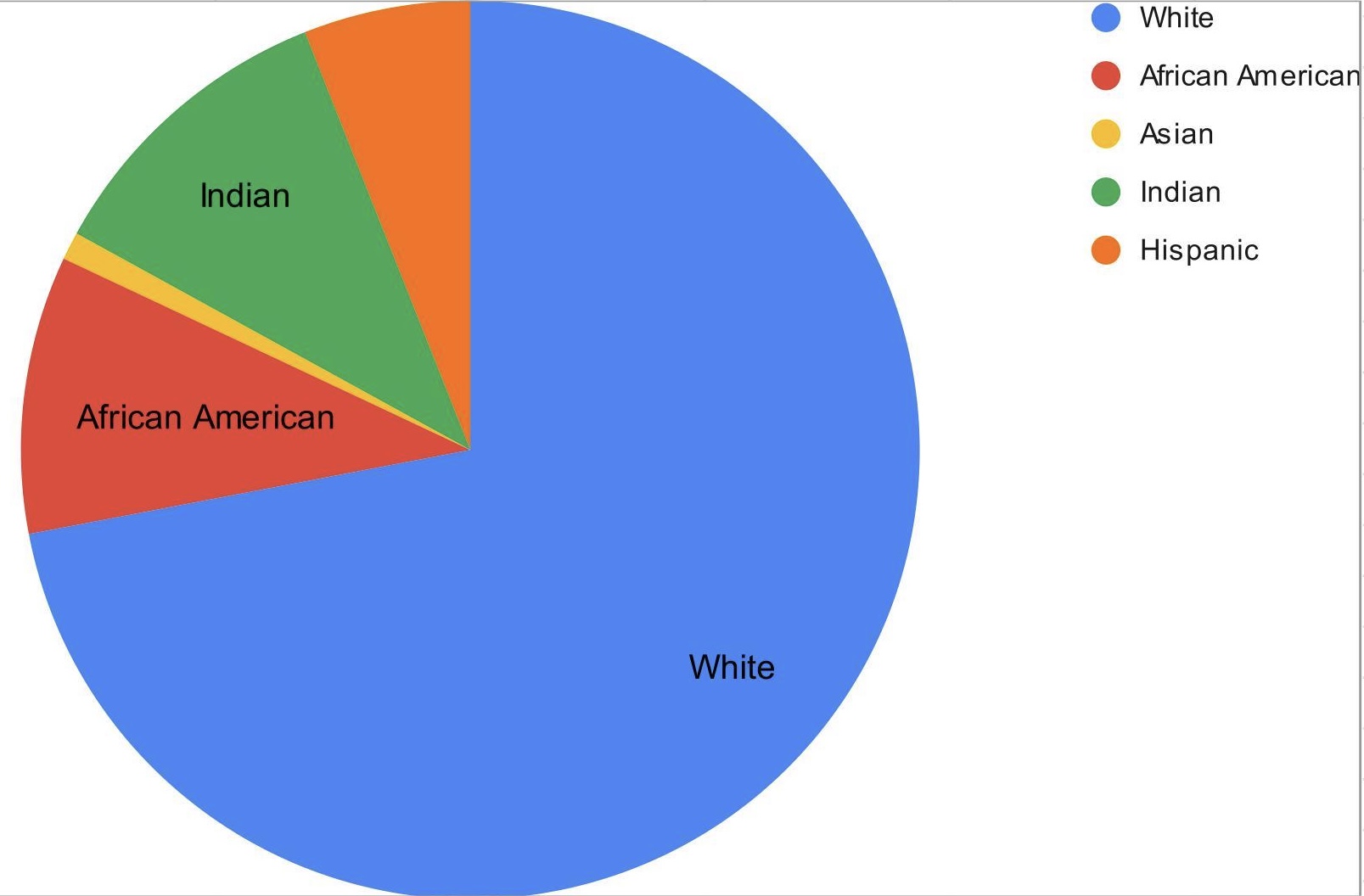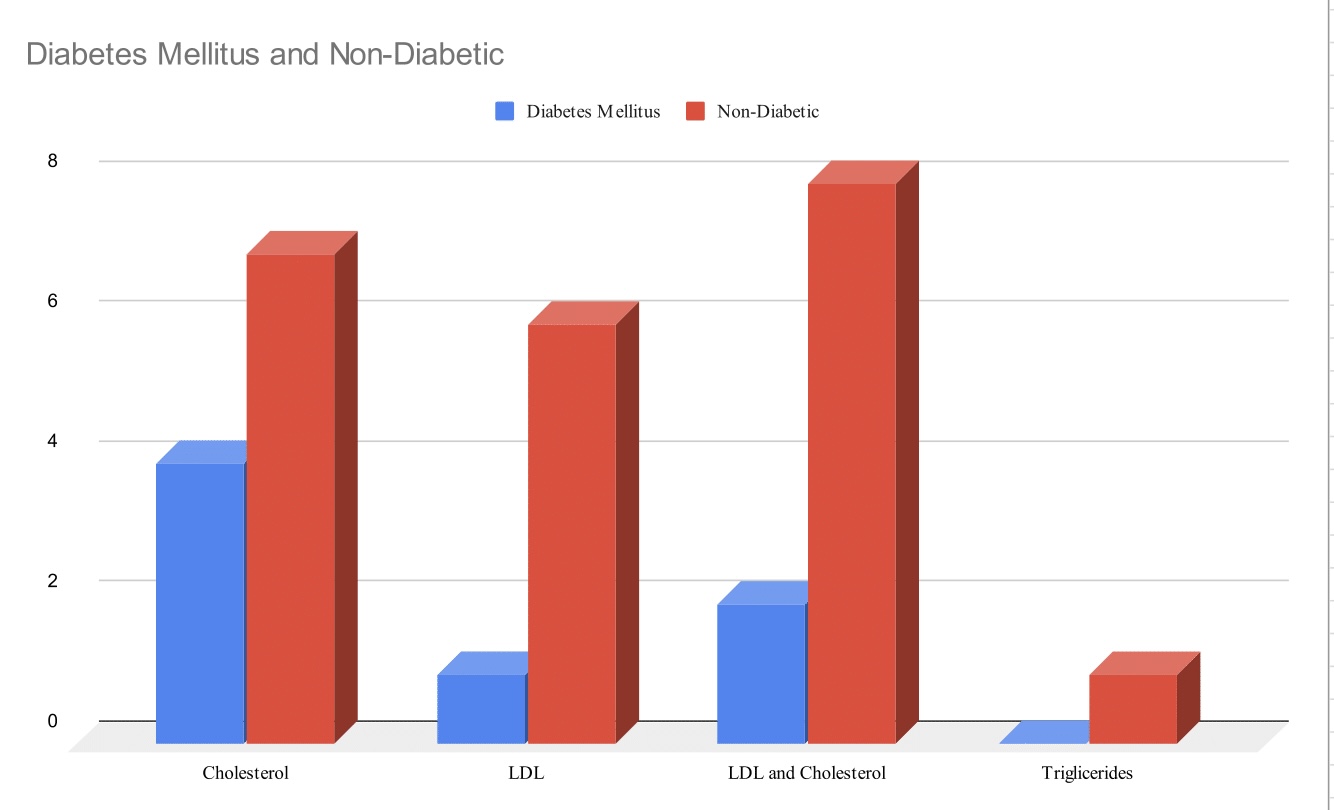Session Information
Date: Saturday, November 16, 2024
Title: RA – Treatment Poster I
Session Type: Poster Session A
Session Time: 10:30AM-12:30PM
Background/Purpose: Janus kinase (JAK) inhibitors have been widely used in treating
rheumatological conditions like rheumatoid arthritis and psoriatic arthritis. Despite their
efficacy, there are concerns regarding major adverse cardiovascular events (MACE) and
venous thromboembolism (VTE) associated with JAK inhibitors. This study aimed to
evaluate the risk of MACE, VTE, and the impact on lipid profiles in patients being treated with
JAK inhibitors.
Methods: We retrospectively reviewed electronic medical records of patients aged 45-65
years old treated with Tofacitinib, Baricitinib, or Upadacitinib in a rheumatology clinic. We
collected data on demographics, comorbidities, medication use, laboratory results, and
cardiac complications potentially related to JAK inhibitors.
Results: Among 100 patients prescribed JAK inhibitors, 71 included in the study (with an
average treatment duration of 2.5 years). The majority of patients were white (72%),
followed by Hispanic (6%), Indian (11%), African American (10%), and Asian (1%). Patients
were being treated primarily for RA (57%), followed by psoriatic arthritis (17%), colitis (20%),
and alopecia areata (6%).
There were no significant cases of VTE reported, with one patient developing pulmonary
embolism during treatment with Tofacitinib while also having COVID-19, making it difficult to
attribute it solely to the medication. Similarly, only one case of atrial fibrillation occurred.
However, 43% (31 patients) experienced worsening of their lipid profile, with increased
cholesterol (18%), LDL (12.5%), both LDL and cholesterol (11%) or triglycerides (1.5%). In relation to Diabetes Mellitus (DM), 24 patients who experienced worsening of their lipid panel did not have a history of DM.
Conclusion: The study findings suggest that patients on Tofacitinib, Baricitinib, and
Upadacitinib did not exhibit a high risk for MACE or DVT. However, there was a notable
incidence of lipid panel worsening among patients. Further research and monitoring may be
needed to better understand the long-term effects of JAK inhibitors on cardiovascular health
and lipid profiles in these patient populations.
This real-world data reflects the current evidence that JAK
inhibitors do not significantly raise the risk of MACE in patients with rheumatoid arthritis, but
do increase cholesterol levels in these patients that should be monitored closely.
To cite this abstract in AMA style:
Hakobyan K, Acob T, Aleksanyan M, Kakhktsyan T, Jumaah O, Prabhakaran S. Evaluating the Usage of Janus Kinase Inhibitors in Rheumatology and Its Impact on Cardiovascular Risk [abstract]. Arthritis Rheumatol. 2024; 76 (suppl 9). https://acrabstracts.org/abstract/evaluating-the-usage-of-janus-kinase-inhibitors-in-rheumatology-and-its-impact-on-cardiovascular-risk/. Accessed .« Back to ACR Convergence 2024
ACR Meeting Abstracts - https://acrabstracts.org/abstract/evaluating-the-usage-of-janus-kinase-inhibitors-in-rheumatology-and-its-impact-on-cardiovascular-risk/


